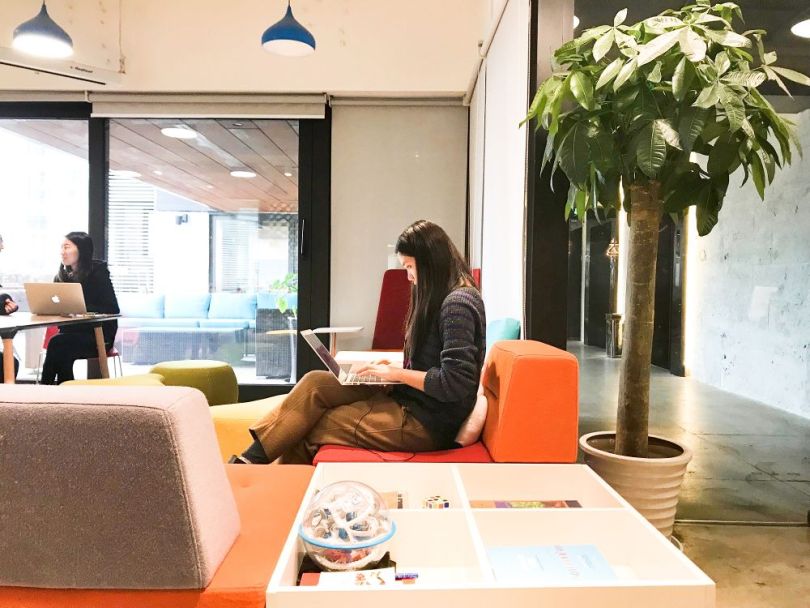“We are past the skills gap, and we have entered a skills crisis.”
Udacity’s Chief Strategy and Business Officer Ayah Shashaa spoke frankly about the challenges emerging across the global economy in her opening remarks for a recent Udacity webinar.
According to research from McKinsey, the crunch of the “skills crisis” is being felt globally. Eighty-seven percent of respondents to a 2020 survey were either already experiencing talent gaps or anticipated them in the near future — but only one-third of companies had strategies in place for reskilling and upskilling their employees.
The consequences are clear. According to the Talent Transformation Global Impact Report from Udacity and Ipsos, “47 percent of enterprises have experienced project delays due to lack of job-ready talent.”
“We must transition out of a siloed approach to skill development into a more talent-centric collaborative ecosystem.”
Reimagining tech education to be increasingly nimble and responsive is key to solving the crisis, said Shashaa. “The traditional education system hasn’t been transformed in a significant way since the Industrial Revolution. We know it is not designed to accommodate this rapid change and pace of innovation.”
Instead, she advised, “We must transition out of a siloed approach to skill development into a more talent-centric collaborative ecosystem.”
That’s where Udacity comes in.
The Udacity Talent Transformation Suite allows its individual, government and enterprise clients to workshop skills, develop a custom learning platform experience and utilize data and insights to analyze results and continue to improve outcomes rooted in their professional development goals.
The consequences of access to such a platform extend beyond our screens. For Shashaa, as a tech executive in the United Arab Emirates, closing the talent gap is a crucial step to building equity for women across the region she calls home.
“One in three females are unemployed in the MENA region,” she said. “Women face systemic barriers such as literacy rates, gender inequality and digital infrastructure that makes access challenging.
“Not having the right skills hampers national digital transformations, economic competitiveness and, sadly, social inclusion.”
But in supporting upskilling and reskilling across digital competencies, Udacity is positioned to transform individual opportunities and increase stability and improve outcomes for businesses and governments.

Building Inclusion Through Talent Transformation
“Udacity is training the workforce of tomorrow in these critical technology skills that are going to be relevant to businesses as they go forward,” Chief Marketing Officer Sarah Reynolds told Forbes.
“We use education and technology to democratize not just opportunity, but also access to these positions. We want to make sure that we’re giving people job-ready skills for the careers of tomorrow, regardless of where they live or how they identify or what their background is,” they continued.
For Reynolds, creating paths for underrepresented professionals to advance is bigger than individual opportunities — it’s crucial to transforming workplace culture across industries.
When talking about building inclusivity within their teams, Reynolds typically highlights two statistics from McKinsey. “Sixty-eight percent of trans and nonbinary people say that they don’t feel comfortable being fully out at work, and they cite concerns about harassment or discrimination or even their physical safety. And 86 percent say that they’ve never seen a leader who looks or seems like them.”
“Talent transformation is not just good for business — it empowers learners to find their voices, demonstrate their worth and unlock new possibilities for growth.”
And so, Reynolds believes the benefit of closing the skill gap and increasing workplace diversity is more than economic.
“Talent transformation is not just good for business — it empowers learners to find their voices, demonstrate their worth and unlock new possibilities for growth,” they said.
That process can help build community, as well, according to Udacity’s Chief Customer Officer Jennifer Dearman.
“Learning together is so much more than learning on your own,” she said. “We’re all feeling pretty isolated these days, so thinking critically and creatively about community helps continually motivate learners and keep them engaged in the process.”
Diversity at Every Level
Mentorship and representation are crucial routes to building diversity in leadership roles, but as Reynolds noted, those examples are often hard to find.
Dearman agreed. “I often get the question about who my role models were, and as I look back on my career, I never really had a female role model. It just wasn’t really available,” she said on a Udacity podcast focused on closing the gender gap. “So I am obligated as a woman in STEM to be that role model.”
While 88 percent of C-suite roles across the tech software industry are filled by men, Udacity’s leadership team is upending the norm.
Shashaa, Reynolds and Dearman fill three of the eight executive roles as part of a leadership team that highlights gender, age and geographic diversity. But Udacity’s work to build a more diverse tech world extends far beyond the C-suite.
Together with partners like UnderDog Devs, Amazon Web Services, Banyan Labs and Microsoft, the company offers access to scholarships and programming that directly support women and gender minorities, Black and Latino tech professionals and formerly incarcerated individuals.
As Udacity works to build a flourishing and diverse tech workforce, the possibilities for advancement only expand, according to Shashaa. “We all have a role to play in creating an equal playground,” she said.









